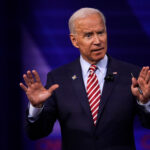At Midnight on April 13th , Iran fired hundreds of drones and missiles against Israel; nearly all of them were intercepted by Israel’s air defenses, which were backed by Jordan, the United States, Britain, and France.
Since then, Israel’s war cabinet has convened many times, but no clear decision has been made about the timing or method of retaliation. To send a strong message to Iran without precipitating a significant escalation, officials are reportedly weighing many alternatives, including a direct strike on the country as well as cyberattacks and targeted attacks.
Israel’s allies have demanded a reaction that avoids escalating tensions with Iran while denouncing Iran’s attack.
Top diplomats, including German Foreign Minister Annalena Baerbock and British Foreign Secretary David Cameron, travelled to Jerusalem on Wednesday, April 17, 2024, in an attempt to defuse tensions sparked by Iran’s historic attack on Israel over the previous two days. Israel had made it clear that it would not tolerate the aerial attack by Iran over the weekend.
Following the incident, Israel has been advised to exercise patience by Germany and the UK, who have warned that any further direct conflicts with Iran might spark an all-out war in the Middle East.
Israel’s intention to retaliate against Iran was met with strong criticism from German Foreign Minister Annalena Baerbock. “Everyone must now act prudently and responsibly,” she declared.
“I’m not advocating caving in. Israel has already demonstrated strength with its defensive win over the weekend, therefore I’m talking about sensible caution, which is nothing less than strength,” the German minister stated.
“Retaliating against Iran would not help anyone—not Israel’s security, not the numerous hostages held by Hamas, not the people suffering in Gaza, not the many Iranians suffering under the regime, and not the third-world nations that just want to live in peace,” she continued.
She did, however, emphasise that her nation is still fully in support of Israel.
Additionally, British Foreign Secretary David Cameron also urged Israel to turn its attention back to Gaza, where the eighth month of the conflict with the terrorist group Hamas is underway.
“It is imperative that we shift our attention towards Hamas, the hostages, delivering aid, and achieving a reprieve in the Gaza conflict,” he stated to the media.
Following Iran’s retaliatory assault, Prime Minister Benjamin Netanyahu, during his cabinet meeting on the 17th of April, 2024, thanked Israel’s partners for their support but made it plain that the nation will take all necessary steps to defend itself.
As per The Times of Israel, he went on to say “I appreciate all kinds of suggestions and advice, but I want to make it known and clear that Israel will make its own decisions, and the state of Israel will do everything necessary to defend itself.”
According to a summary from his office of his talks with the European ambassadors, Netanyahu also “insisted that Israel preserve the right to self-defence.”
Cameron told the BBC on Wednesday that he hoped Tehran would be targeted for retribution “in a way that is smart as well as does as little to worsen this conflict more than it already is,” while acknowledging Israel’s right to make its own decisions.
According to Reuters, Israel has started a “diplomatic offensive” against Iran, demanding sanctions against the Islamic republic; in response, the US, the EU, and the G7 group of industrialised nations have all declared plans to investigate imposing stronger sanctions on Iran.
New sanctions on Tehran, which may be aimed at limiting the nation’s ability to export oil, are expected to be implemented within days, according to the U.S. Treasury Secretary Janet Yellen’s statement on Tuesday. The nuclear programme, the energy and defence industries, government personnel, banks, and other facets of Iran’s economy have all been singled out by the United States for sanctions.
The Iranian Revolutionary Guard Corps (IRGC), its Quds Force abroad, the Ministry of Defence and Armed Forces Logistics, and other individuals and organisations it said were connected to them have all been subject to multiple sets of sanctions by the United States. The Quds Force and the IRGC have been classified as foreign terrorist organisations by Washington. Republicans in Congress are also debating several queries for Iran.
Washington claims that it will soon be enacting fresh sanctions against Iran related to its drone and missile programmes, and it anticipates that its allies will do the same. Sanctions will be a topic of discussion at the next summit of EU leaders in Brussels and the G7 meeting in Italy.
Cameron stated that the United States, Britain, Germany, and the other members of the Group of Seven should cooperate to impose sanctions on Iran.
Israel is well aware of the worries expressed in the US and Europe over the war’s intensifying regionally. Western leaders, however, might find solace in the knowledge that Israeli officials are attempting to capitalize on the diplomatic backing they received following Iran’s strikes, which have prompted international censure and the prospect of more penalties on Tehran. Mr Netanyahu might not want to sabotage the connections with his country’s allies by launching a retaliatory attack that sparks a full-scale conflict in the region.




